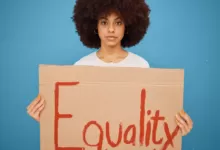Resolving Interpersonal Conflicts Effectively

Did you know that about 85% of workers face conflicts at work? It’s a fact that shows how common these issues are. Being good at handling these conflicts can change a tense atmosphere to a cooperative one.
Conflict management is more than putting out fires. It’s about creating a way to solve disputes peacefully. Having good conflict resolution skills can turn tough situations into chances for growth. This article will look at the best ways to manage and resolve conflicts.
Many don’t see that conflict can spark positive change if handled correctly. By learning to deal with interpersonal conflicts, we can strengthen our relationships. Learning this requires knowledge, patience, and a desire to understand others. This is key to finding effective ways to resolve conflicts and respect each other.
The Nature and Impact of Interpersonal Conflicts
Interpersonal conflicts happen when people have different views. They occur in work and personal life. Handling them well improves harmony.
Understanding the Definition of Interpersonal Conflict
Interpersonal conflict comes from disagreements among people. It’s different than fighting with oneself. Conflicts arise from different opinions, values, or wants. Being good at managing these conflicts is key today.
The Consequences of Unresolved Conflict
Not fixing conflicts can lead to bad results. Communication can fail, work suffers, and relationships can fall apart. So, it’s important to solve these conflicts with good communication.
| Outcomes of Resolving Conflicts Peacefully | Outcomes of Unresolved Conflicts |
|---|---|
| Improved relationships | Strained relationships |
| Enhanced collaboration | Decreased teamwork |
| Heightened trust | Lack of trust |
| Greater understanding | Misunderstandings |
| Personal growth and development | Personal stagnation |
Peacefully solving conflicts is very important. Using clear and kind communication turns conflicts into chances for growth. This helps us and the whole community.
Types of Interpersonal Conflicts
It’s key to know the different types of interpersonal conflicts to solve them well. Each conflict is unique and needs its own approach. This understanding helps us handle conflicts without fights.
Dissecting Pseudo Conflict and Its Resolution
Pseudo conflicts come from misunderstandings or not communicating well. They happen when people think they want different things. Or when messages get mixed up. To solve these, we just need to clear up the confusion and check goals. This way, the conflict ends quickly.
Addressing Fact Conflict Through Information Verification
Fact conflicts are about disagreeing on facts or data. To solve these, we look for true and trusted info. Using smart thinking and research helps. This way, we can agree on facts and solve the dispute together.
Navigating Value and Policy Conflicts
Value conflicts are about deep beliefs. Policy conflicts are about how to reach goals. These conflicts make us really listen to others. They’re hard to solve but talking and respecting other views helps. Looking for solutions that work for everyone is key.
The main aim of solving conflicts stays the same – to solve them peacefully. Knowing the type of conflict and the best way to solve it is crucial. With the right approach, we can manage conflicts well.
Building Effective Communication Skills
Communication skills are key to solving interpersonal conflicts. It’s not just what you say, but how you say it that matters. These skills help create effective conflict resolution strategies. They make our interactions at work and home healthier and more positive.
In conflict resolution, good communication includes many parts. Active listening is important. It means really hearing and understanding what others say. Non-verbal signs like eye contact and open body language also play a big role. They make people feel more welcome to share their thoughts.
| Communication Component | Role in Conflict Resolution | Tips for Improved Effectiveness |
|---|---|---|
| Active Listening | Fosters understanding and validates participants’ feelings and thoughts. | Provide feedback that you understand, avoid interrupting, and ask clarifying questions. |
| Non-verbal Signals | Reinforce the spoken message, convey empathy and openness. | Maintain eye contact, use nods to show understanding, and avoid closed-off body language. |
| Verbal Affirmation | Builds trust and shows recognition of other perspectives. | Use phrases like “I understand” or “That makes sense” to acknowledge others’ viewpoints. |
| Questioning | Helps to uncover underlying issues and promotes deep thinking. | Implement open-ended questions that encourage detailed responses. |
| Emotional Intelligence | Allows for managing one’s emotions and understanding others’. | Practice self-awareness, control emotional responses, and demonstrate empathy. |
Using these communication parts well can solve issues caused by interpersonal conflicts. Good communication lets us navigate the complex parts of conflict resolution. It ensures everyone is heard and plays a role in finding solutions together.
Identifying Personal Values in Conflicts
Understanding personal values is key to solving workplace conflicts. These values influence how we handle disagreements and communicate. They shape our thoughts, feelings, and actions during conflicts. Knowing this helps us approach conflicts with empathy and a more personalized method.
How Personal Beliefs Shape Interactions
Our values guide how we interact with others. Harmonious interactions occur when values align. Yet, value differences can cause disagreements. Discussing how beliefs affect decisions and actions is vital for resolving conflicts at work. Values like ethics, culture, and work-life balance matter in these situations.
Finding Common Ground in Differing Values
Resolving conflicts with different values is challenging. It’s about understanding each other, not changing beliefs. Finding common ground is essential. This could be a shared goal, professional ethics, or wanting a respectful workplace. Effective conflict resolution needs respect for personal values and compassionate mediation.
Key Conflict Resolution Strategies
Learning how to resolve conflicts is key for handling disagreements. Knowing good conflict resolution methods helps everyone deal with issues more smoothly. This leads to better relationships and outcomes.
Understanding Withdrawal and When to Use It
Withdrawal, or avoidance, is a way to handle conflict by stepping back. It lets emotions cool down. This is especially useful for small issues or bad timing.
The Power of Accommodation and its Limitations
Accommodation means one side gives in to keep peace. Although it brings harmony, it might ignore your own needs. Knowing when and how much to accommodate is important to avoid unfairness.
| Strategy | When to Use | Benefits | Limitations |
|---|---|---|---|
| Withdrawal | When emotions are high For trivial or unsolvable issues |
Allows for cooling off Prevents escalation |
May not resolve the underlying issue Can be seen as avoiding |
| Accommodation | To preserve relationships When the issue is more important to the other party |
Promotes harmony Quick resolution |
Can lead to resentment Your needs may be unmet |
Using these strategies right is a key part of managing conflicts well. They help guide us through tough situations to find positive results.
Resolving Conflicts with Competition
Competition plays a key role in handling conflict. It allows people to strongly support their views. This way, they aim for a victory, but with respect and fairness. Still, it’s important to mix assertiveness with care to avoid making things worse.
When the situation is critical, competition might be the best choice. We will look at times when being assertive works best. And when other ways might be better. This shows us how competition can actually lead to peace, not just rivalry.
| Positive Aspects of Competition | Potential Risks of Over-Competitiveness |
|---|---|
| Encourages clarity and firm advocacy for one’s position | May alienate other parties and lead to heightened tensions |
| Leads to quick, decisive outcomes where time is of the essence | Creates win-lose situations that could affect future collaboration |
| Spurs innovation and creative solutions | Risks overlooking mutually beneficial solutions in favor of victory |
| Fosters individual and team growth through tackling challenges | Can establish an environment of distrust if not transparent |
Winning in conflicts should be balanced with long-term relationships and everyone’s happiness. Assessing the situation carefully is key. Learning about conflict resolution strategies helps use competition wisely. This way, it can be a positive force in managing conflicts.

“A competitive approach should not be the reflex to every conflict encounter. Instead, it is a path chosen when one’s values, rights, or critical needs are at stake and can be defended responsibly.” – The declaration underscores the nuance required in weaving competition into the fabric of conflict resolution methods.
Competition should be used with caution, like a strong spice. It’s vital to know when it helps or harms conflict resolution. This strategy supports both personal goals and everyone’s good. This makes competition a useful part of solving conflicts.
The Role of Compromise in Conflict Management
In human interactions, compromise is often needed to keep relationships smooth. It stands as a key conflict resolution strategy. Finding a middle ground means weaving through different views for a solution that everyone can agree on. But, there’s a fine line to walk in conflict management. It’s between giving in and feeling satisfied with the outcome.
Recognizing the Pros and Cons of Compromise
Compromise is the sweet spot for solving disagreements. It’s valued for making discussions fair and spreading decision power equally. Achieving it can lead to fast solutions that save both time and effort. Yet, compromise also means each side gets less than they hoped. This can stir up feelings of loss and might spark new conflicts if not handled carefully.
Implementing Fair Compromise Practices
The success of compromise in ending disputes relies on fairness. It’s important that everyone sees the outcome as just. This avoids hard feelings. Fair conflict management aims at dividing both the give and take evenly. For fair play, start talks with clear goals and know what you can give up.
| Strategy | Benefits | Risks | Implementation in Conflict Management |
|---|---|---|---|
| Compromise | Democratizes decision-making, quick resolutions, preserves relationships | Potential for future resentment, feeling of loss | Transparent negotiation, fair distribution of concessions |
To truly understand compromise in conflict management, know it serves two roles. It’s a solution and a foundation for better communication later on. When we compromise, we should not only fix the current problem. We must also build a basis for future positive interactions.
Collaboration: A Win-Win Resolution Technique
In conflict management, using collaboration is very effective. It brings people together to achieve a shared goal. Unlike other ways that just stop conflicts for a while, collaboration lets everyone bring their best ideas. Everyone shares different views and works on a solution that helps all.
Collaboration does more than just solve a problem. It builds stronger bonds and leads to innovative solutions later on. By using a range of conflict resolution techniques that focus on talking and working together, collaboration creates a win-win situation. Here, everyone respects and understands each other not just in theory but in real life too.
To deal with conflict through collaboration, one needs to listen well and keep an open mind. It’s important to talk openly and blend different ideas into a common vision for solving the problem. This is where the key parts of good conflict management are needed. We should aim to resolve the current issue and make collaboration our go-to solution for any future challenges.
Through collaboration, the unique strengths and ideas of each individual are leveraged to forge a path toward resolution that respects and incorporates the diverse needs of everyone involved.
Interpersonal Conflicts: Observing and Questioning
Understanding interpersonal conflicts and how to solve them at work needs careful attention. You have to watch closely and ask smart questions. It’s about noticing the little things people do and how they act.

Improving Observational Techniques
To deal with interpersonal conflicts well, we must get better at observing. This includes listening to what’s said and how it’s said. Things like body movements, the way someone looks, and pauses in talking can tell us a lot.
The Art of Inquisitive Engagement
Asking thoughtful questions is also key. Using open-ended questions helps get more information out. It helps everyone understand the real problem. This way, we create a solid base for solving conflicts at work.
Active Listening and ‘I’ Statements
Learning communication skills like active listening is key in solving interpersonal conflicts. When we listen actively, we fully focus on the speaker. We show we understand and ask questions to get clear. Everyone feels respected and important. Active listening goes beyond hearing. It includes understanding body language and emotions. This helps make every person in the conversation feel they are understood. When this happens, it’s easier to work together to solve issues.
Using ‘I’ statements in conflicts is also crucial. This method involves sharing feelings and experiences. But it’s done without blaming others. ‘I’ statements help everyone feel less defensive. They also encourage responsibility. By using them, people say how they feel in a positive way. This leads to better, more open talks.
| Communication Method | Benefit | When to Use |
|---|---|---|
| Active Listening | Builds mutual respect and understanding | In initial discussions and throughout conflict resolution processes |
| ‘I’ Statements | Encourages expression without blame | When discussing sensitive issues and personal impact |
At their heart, active listening and ‘I’ statements are about valuing everyone’s views. They help prevent arguments from getting worse. These communication skills are vital in both work and personal life. They turn disputes into chances for growth and better understanding. This is very important in handling interpersonal conflicts.
By using active listening and ‘I’ statements together, it’s easier to understand each other. This leads to friendlier and lasting solutions.
Cultivating Empathy for Conflict Deescalation
In the world of conflict resolution techniques, growing empathy is like caring for a garden. It needs patience, understanding, and steady attention. Like a well-tended garden, empathy can change how we relate to each other, leading to resolving conflicts peacefully. By seeing things from another’s perspective, recognizing their feelings, and showing real care, we can shift from deadlock to open, meaningful conversations.
How Empathy Transforms Disputes
When empathy is present, conflict begins to fade. Understanding and sharing the feelings and thoughts of others makes us put down our defenses. Instead of fighting, we start talking. This doesn’t just calm the situation; it changes it. We focus on working together to solve the problem, rather than on winning the argument.
Practical Ways to Demonstrate Empathy
Showing empathy might not come naturally, but it’s a skill you can learn. Here are clear ways to show you care and can help calm conflicts:
| Verbal Affirmations | Supportive Body Language |
|---|---|
| “I hear what you’re saying.” | Nodding to show understanding |
| “Your feelings are valid.” | Maintaining eye contact to show you’re engaged |
| “I can see why that would be frustrating.” | Leaning in slightly to show you’re involved in the conversation |
| “Let’s work together to find a solution.” | Keeping an open posture to avoid appearing defensive |
By following these conflict resolution techniques and committing to empathy, we open up a space where everyone feels understood. This leads to resolving conflicts peacefully. The solutions we find are not just stopgaps, but bridges to better collaboration in the future.
Encouraging a Culture of Respectful Dialog
At the core of good work places is the key practice of respectful dialog. This way of talking upholds that everyone’s views matter. It makes a safe space for open talk and helps manage interpersonal conflicts with respect for everyone.
Creating a welcoming culture takes time and a promise to get better at communication skills. By adding respect, listening well, and helpful feedback to talks, we grow a more united and understanding community.
One benefit of respectful dialog is stopping conflicts before they grow. When people feel listened to and valued, they respond with kindness. This eases tension and leads conversations to helpful outcomes.
The ability to work through conflicts well is key to growing personally and professionally. It relies a lot on how we talk in a group. Making sure talks are respectful and include everyone lays a strong base for solving conflicts.

Getting better at communication skills is an ongoing path. It not only helps us handle interpersonal conflicts but also makes us better leaders, coworkers, and community members. Adopting respectful dialog changes our interactions, making everyone feel important and listened to.
When to Seek External Help or Mediation
Sometimes, people and groups get stuck while trying to fix conflicts. Knowing when to ask for outside help is crucial for solving these issues. Mediation services give unbiased help, creating a space where everyone is heard. This is important for breaking through standstills.
Mediation isn’t only for ending current disagreements. It also stops future ones by improving how we talk to each other. Conflict resolution training gives people the tools to address problems early. Getting outside help is often a smart choice, making teamwork smoother and reducing fights.
Exploring Professional Conflict Resolution Options
If trying to solve problems internally doesn’t work, getting professional help is key. These experts know how to ease tensions and improve understanding. They act as neutral parties, making it easier to focus and find solutions.
Benefits of Conflict Resolution Training
In a perfect scenario, everyone would know how to resolve conflicts peacefully. Yet, conflict resolution training is usually needed to develop these skills. These programs teach how to manage disputes effectively and kindly. They focus on active listening, negotiating, and understanding emotions, which are key in all areas of life.
Conclusion
Handling conflicts is part of human life. It can cause problems but also help us grow. Learning to solve these conflicts is key in both our personal and work lives. By using good communication, we can turn disagreements into chances to make our relationships stronger. Listening well is crucial as it shows we really want to understand others and find solutions.
Being empathetic is also essential in dealing with conflicts. When everyone feels heard and valued, it’s easier to work together and find solutions. Solving conflicts with empathy, clear talking, and a willingness to compromise can lead to good outcomes for everyone. It makes our bonds stronger and helps us work better together.
Sometimes, we need help from outside to handle conflicts. Looking for a mediator or taking courses in conflict resolution can teach us new ways to manage disagreements. This is helpful in both our personal lives and at work. Being good at resolving conflicts is important for our growth and keeping peace in our interactions.




